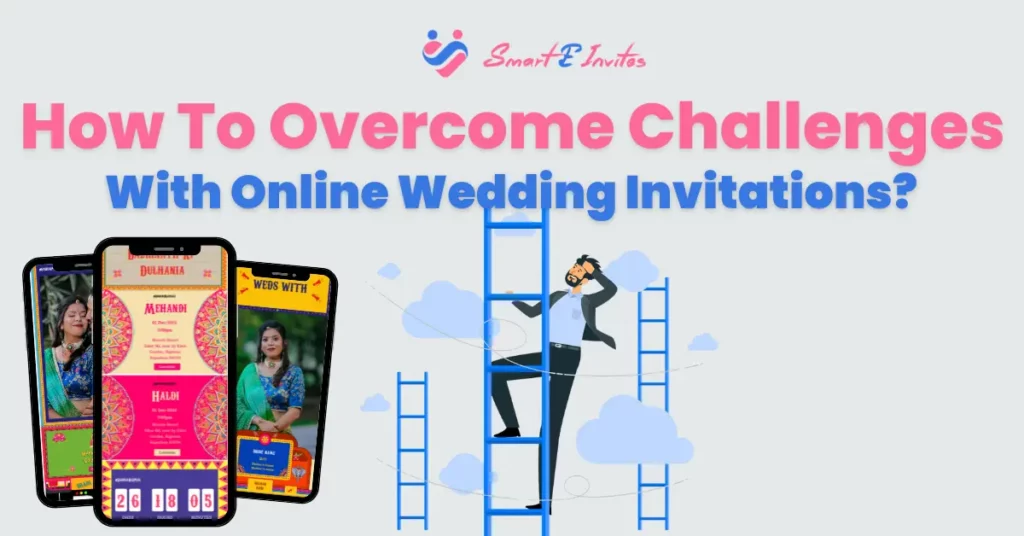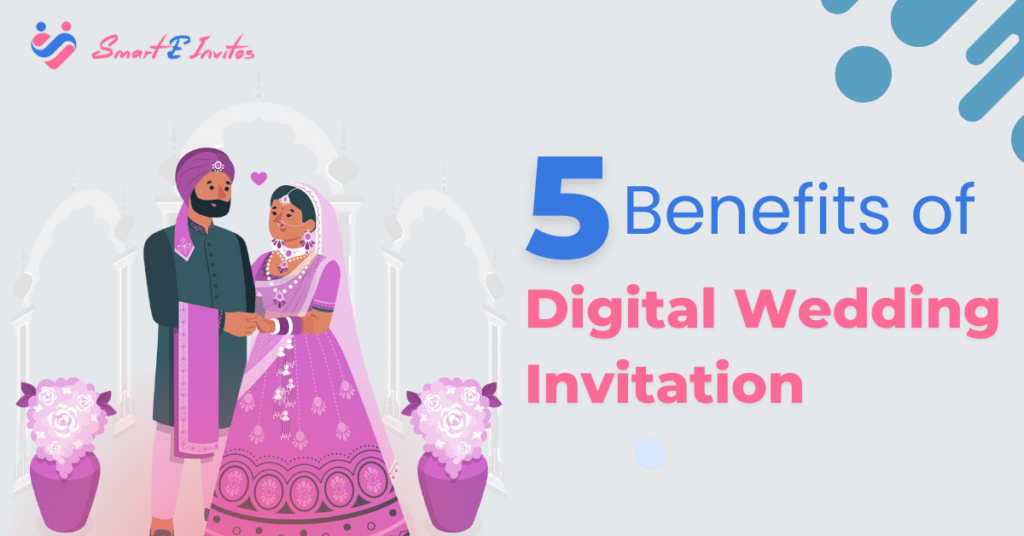Online wedding invitations have revolutionized the way couples invite their guests to their special day. While these digital alternatives offer convenience, Solicitation and Eco-friendliness, they come with their own set of challenges. From ensuring your Marriage invitations do not end up in spam folders to troubleshooting technical glitches, there’s a lot to navigate.
Exploring the Challenges of Online Wedding Invitation
This guide will explore these challenges and provide expert tips on overcoming them.
Evaluating Online Invitation Platforms
Choosing the right online invitation platform is crucial. Opting for a platform that aligns with your design preferences, guest management needs, and technical requirements is important. Moreover, look for platforms that offer editing options, responsive designs, and robust RSVP tracking features. However, reading user reviews and checking out platform tutorials can provide insights into the user experience and reliability.
Designing Eye-Catching Digital Wedding Invitations

The design of your online wedding invitation sets the tone for your big day. To ensure your invitation catches the eye and conveys the essence of your wedding, follow these tips:
- Personalisation: Incorporate elements that reflect your love story and personality.
- Colour Palette: Choose a harmonious color palette that matches your wedding theme.
- Typography: Use readable fonts that add elegance and clarity to your text.
- Visuals: Include high-quality images that showcase your relationship or engagement photos.
- Mobile-Friendly: Ensure your design looks great on both desktop and mobile devices.
Remember, your invitation should visually represent the celebration to come.
Navigating Email Filters and Spam Folders
One of the most common challenges with online invitations is the risk of them landing in spam folders. Moreover, to improve the chances of your invitations reaching your guests’ inboxes:
- Use Reputable Email Services: Sending invitations through well-known email services reduces the likelihood of being marked as spam.
- Avoid Spammy Language: Craft your subject line and content carefully to avoid triggering spam filters.
- Test Before Sending: Send test invitations to various email providers to ensure deliver ability.
- Ask Guests to Allowlist: Encourage your guests to add your email address to their contacts to prevent filtering.
By taking these precautions, you can increase the chances of your invitations getting noticed.
Streamlining RSVP Processes

Managing RSVPs can be overwhelming, especially when dealing with a large guest list. Online invitations offer tools to simplify the RSVP process:
- Clear Instructions: Provide step-by-step instructions on how to RSVP online.
- Deadline Visibility: Highlight the RSVP deadline to encourage timely responses.
- Automated Reminders: Set up automated reminders for guests who have not responded yet.
- Guest Information: Collect essential details like meal preferences and plus-one information.
Efficient RSVP management helps you plan your wedding more effectively.
Troubleshooting Common Technical Issues
While online invitations save paper, they can sometimes lead to technical hiccups. Therefore, here are solutions to common issues:
- Mobile Compatibility: Ensure your wedding invitation is optimised for mobile viewing.
- Broken Links: Double-check all links in the invitation to ensure they work.
- Attachment Problems: If you’re attaching files, ensure they’re accessible and downloadable.
- Testing: Before sending, send test invitations to yourself and others to identify any issues.
Preventing and addressing technical problems ensures a seamless experience for your guests.
Proper Digital Wedding Invitation Etiquette
Digital invitations deserve the same level of respect as traditional ones. Follow these invitation etiquette guidelines:
- Personalised Greetings: Address each guest by name to make them feel valued.
- No Mass CC/BCC: Avoid sending invitations in mass CC or BCC emails to maintain privacy.
- Send Well in Advance: Send invitations early to give guests sufficient time to RSVP and make arrangements.
- Thank-You Messages: Follow up with thank-you messages to those who RSVP promptly.
Adhering to these etiquette tips will show your guests that their presence matters.
Creating Backup Communication Channels
Even in the digital age, having backup communication channels is essential. Moreover, not all guests may receive or check their emails regularly. Consider:
- Social Media: Create event pages or groups for updates and communication.
- Phone Calls: Reach out personally to guests who may not be tech-savvy.
- Messaging Apps: Utilize messaging apps for real-time updates and reminders.
By diversifying your communication methods, you ensure that you keep everyone informed.
Conclusion
Online wedding invitations offer convenience and creativity, but they come with their own set of challenges. To ensure that your wedding invitations are impressive and successful, there are several steps you can take. First, choose a reliable platform.
Create attractive invitations that will catch your guests’ attention. Be mindful of spam filters to ensure that your wedding invitations reach their intended recipients.
Make it easy for guests to RSVP by providing clear instructions. Address any technical issues promptly to avoid any disruptions. Follow proper etiquette when sending out your invitations. Lastly, have backup communication options in case any problems arise.
By following these steps, you can overcome challenges and ensure that your wedding invitations are a hit.
FAQs
Ques 1. Can I track who has opened and viewed my online wedding invitation?
Ans. Many online invitation platforms offer tracking features that help you to see who has opened and viewed your invitation, along with their RSVP status.
Ques 2. Is it appropriate to send online invitations for formal weddings?
Ans. Online invitations can be as elegant and sophisticated as traditional paper invitations. It’s all about the design and presentation.
Ques 3. What should I do if a guest’s email address bounces back or is incorrect?
Ans. If you receive a bounce-back or notice an incorrect email address, consider contacting the guest through an alternative communication method, like phone or social media, to ensure they receive the invitation.


